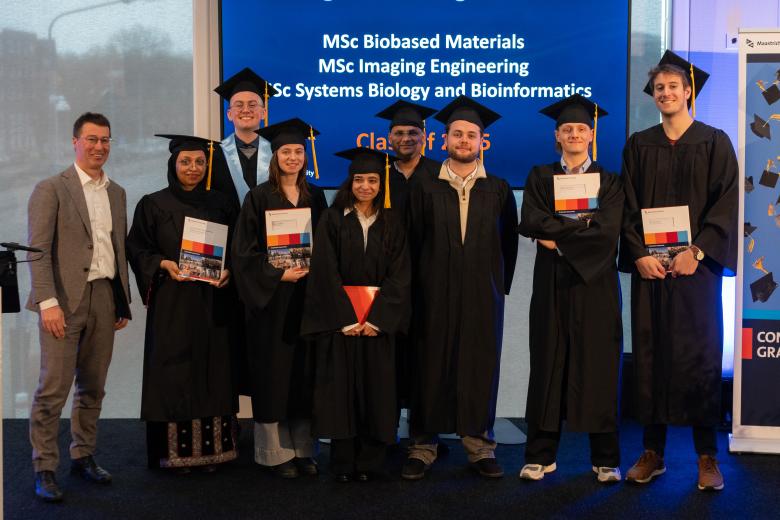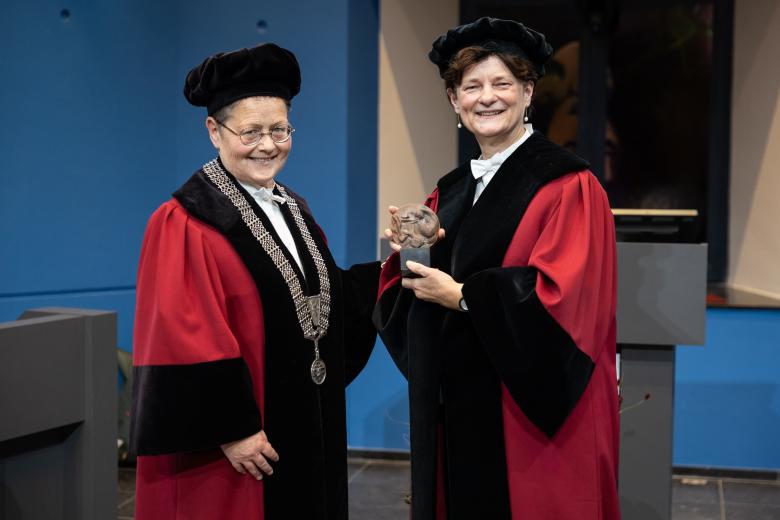Epidemiology students on a scholarship: Emily and Suhad
Students at our faculty are committed to making an impact on health, well-being and society. These are the inspirational stories about students who go above and beyond to reach their goals. Let’s meet Emily and Suhad, both scholarship students in Epidemiology looking for a broad foundation in research methodology, in order to help them reach their dreams.
Two prestigious merit-based scholarships
Emily and Suhad are both students on a scholarship, meaning they receive merit-based support for their tuition and housing. Emily is on the Fulbright Scholarship, a collaboration between the USA and the Netherlands. “I have a background in International studies, Arabic and Chinese, with specialisations in global health and the Middle East.” Emily’s background isn’t typical for Epidemiology. On the other hand, many physicians decide to pursue research by studying Epidemiology, as Suhad does. “I was a practicing physician in Sudan. After a few years of clinical work, I rediscovered my passion for research and epidemiology. So I made the decision to change careers and work outside of the clinic.” Her decision was strengthened by a friend who suggested Suhad applied for a scholarship. “At first, I thought only students with a lot of volunteer work or leadership positions received scholarships, but I learned about the Holland High Potential Scholarship which you can get based on outstanding academic performance.” When she got the acceptance letter, a war erupted in Sudan and Suhad spent the next six months travelling from Sudan to Bahrain to Ethiopia in order to receive the necessary travel visas for the Netherlands. “It wasn’t easy, but I kept going. Even if that meant going to the roof of my building to find an internet connection.”
Social epidemiology for humanitarian aid
Despite their diverse academic backgrounds, Emily and Suhad share similar career goals. “We are both interested in social epidemiology, which focuses on social-structural conditions of populations and how these conditions determine their health situation and quality of life.”
The two students chose this branch of epidemiology because of their career goals. Emily: “I want to work in healthcare for refugees. I spent some time in the refugee camp in Calais, France which is also called the Calais Jungle. It really was a complex, unsafe environment. There aren’t a lot of professional workers with the necessary background. The ones that do are usually volunteers that only stay for a while.
Epidemiology can make a difference by implementing evidence-based health guidelines for workers and volunteers. “For example, a common communicable disease in these camps is scabies, a skin disorder. Last year, there was a global outbreak of monkeypox, which does not have the same characteristics as scabies. However, there was a misunderstanding of these infectious diseases among workers and volunteers that led to refugees not receiving proper care. Epidemiology can help us track the spread of illness, and evaluate the effectiveness of interventions on the field. In addition, epidemiologists can issue proper evidence-based guidelines to better inform the decision-making process.”
Evidence-based answers to health issues
Epidemiology will support Suhad and Emily with their career goals, teaching them how to conduct research or how to properly collect data and analyse it to come up with health guidelines. Suhad: “It’s a foundation course applicable across all fields of health. If you want to have the theoretical background to come up with evidence-based answers, study epidemiology. Although you should probably be a fan of statistics to begin with.”
UM scholarships
As an open and accessible academic community, UM offers several scholarships to support top-performing students with personal development potential to pursue a degree at UM. If Emily and Suhad inspired you to study at Maastricht University on a scholarship, have a look at our website with more information.
Also read
-
Ron Heeren appointed fellow of the Netherlands Academy of Engineering
Professor Ron Heeren, distinguished university professor at Maastricht University (UM) and director of the Maastricht MultiModal Molecular Imaging Institute (M4i), was appointed as a fellow of the Netherlands Academy of Engineering (NAE) on Thursday 11 December.
-
Prof. dr. Mirjam oude Egbrink awarded MUMC+-medal
During her farewell lecture on Friday, 28 November, Prof. Mirjam Oude Egbrink was awarded the MUMC+ medal by Dean Annemie Schols for her distinguished career.
-
More than a student job: five alumni about their unique role in groundbreaking vascular research
What is it like to take part in cutting-edge vascular research as a student, standing in the operating room, directly responsible for handling patient material? Five alumni of the Maastricht MAPEX student team share what they learned, the challenges they faced, and how this experience shaped their...